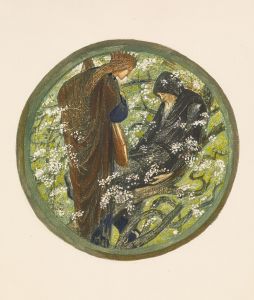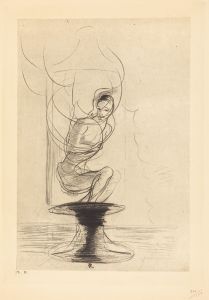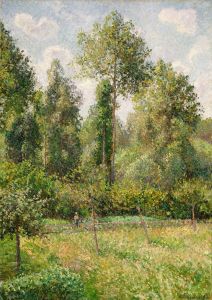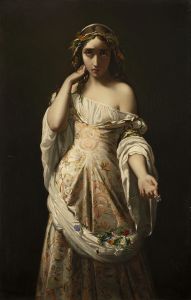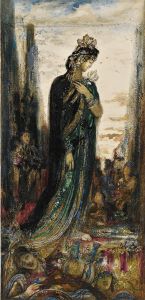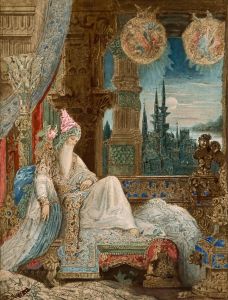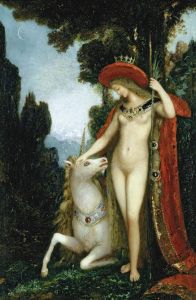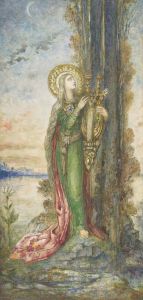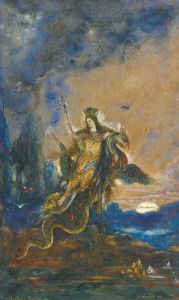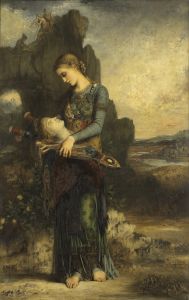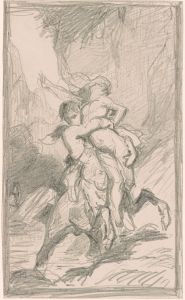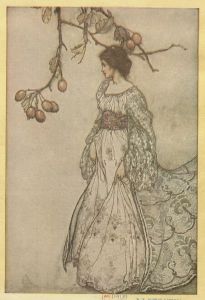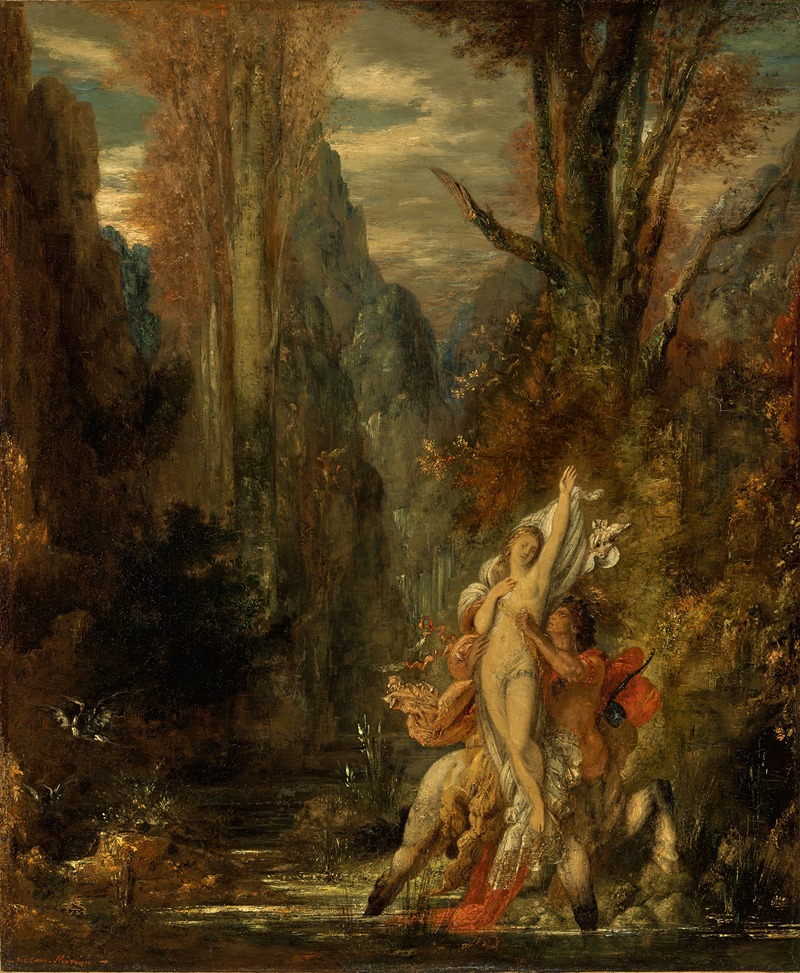
Dejanira
A hand-painted replica of Gustave Moreau’s masterpiece Dejanira, meticulously crafted by professional artists to capture the true essence of the original. Each piece is created with museum-quality canvas and rare mineral pigments, carefully painted by experienced artists with delicate brushstrokes and rich, layered colors to perfectly recreate the texture of the original artwork. Unlike machine-printed reproductions, this hand-painted version brings the painting to life, infused with the artist’s emotions and skill in every stroke. Whether for personal collection or home decoration, it instantly elevates the artistic atmosphere of any space.
Gustave Moreau, a prominent French Symbolist painter, created numerous works that delve into mythological and allegorical themes. Among his extensive oeuvre, "Dejanira" is one of his paintings that reflects his fascination with classical mythology and his distinctive artistic style. The painting depicts Dejanira, a figure from Greek mythology, who was the wife of the hero Heracles (Hercules in Roman mythology). Her story is most famously associated with the tragic events surrounding the centaur Nessus and the eventual demise of Heracles.
In "Dejanira," Moreau employs his characteristic use of intricate detail, rich textures, and a dreamlike atmosphere. The painting captures a moment of emotional intensity, often interpreted as Dejanira's inner turmoil or her involvement in the fateful events that led to Heracles' death. Moreau's work is known for its symbolic depth, and "Dejanira" is no exception, as it explores themes of love, betrayal, and destiny.
The painting is executed in Moreau's signature style, which combines elements of Romanticism and Symbolism. His use of vivid colors, elaborate ornamentation, and a focus on the psychological and emotional dimensions of his subjects distinguishes his work from that of his contemporaries. Moreau's approach often blurs the line between reality and imagination, creating a sense of otherworldliness that is evident in "Dejanira."
"Dejanira" is housed in the Musée Gustave Moreau in Paris, a museum dedicated to the artist's life and work. The museum, which was once Moreau's residence and studio, contains a vast collection of his paintings, drawings, and personal artifacts. Visitors to the museum can view "Dejanira" alongside other masterpieces by Moreau, gaining insight into his artistic vision and his contributions to the Symbolist movement.
While specific details about the creation date or the exact circumstances surrounding the painting of "Dejanira" are not widely documented, the work remains an important example of Moreau's exploration of mythological subjects. It exemplifies his ability to convey complex emotions and narratives through his distinctive artistic language.
As with many of Moreau's works, "Dejanira" invites viewers to interpret its meaning and symbolism, reflecting the artist's belief in the power of art to evoke imagination and introspection. The painting continues to be admired for its aesthetic beauty and its contribution to the Symbolist tradition in 19th-century art.





